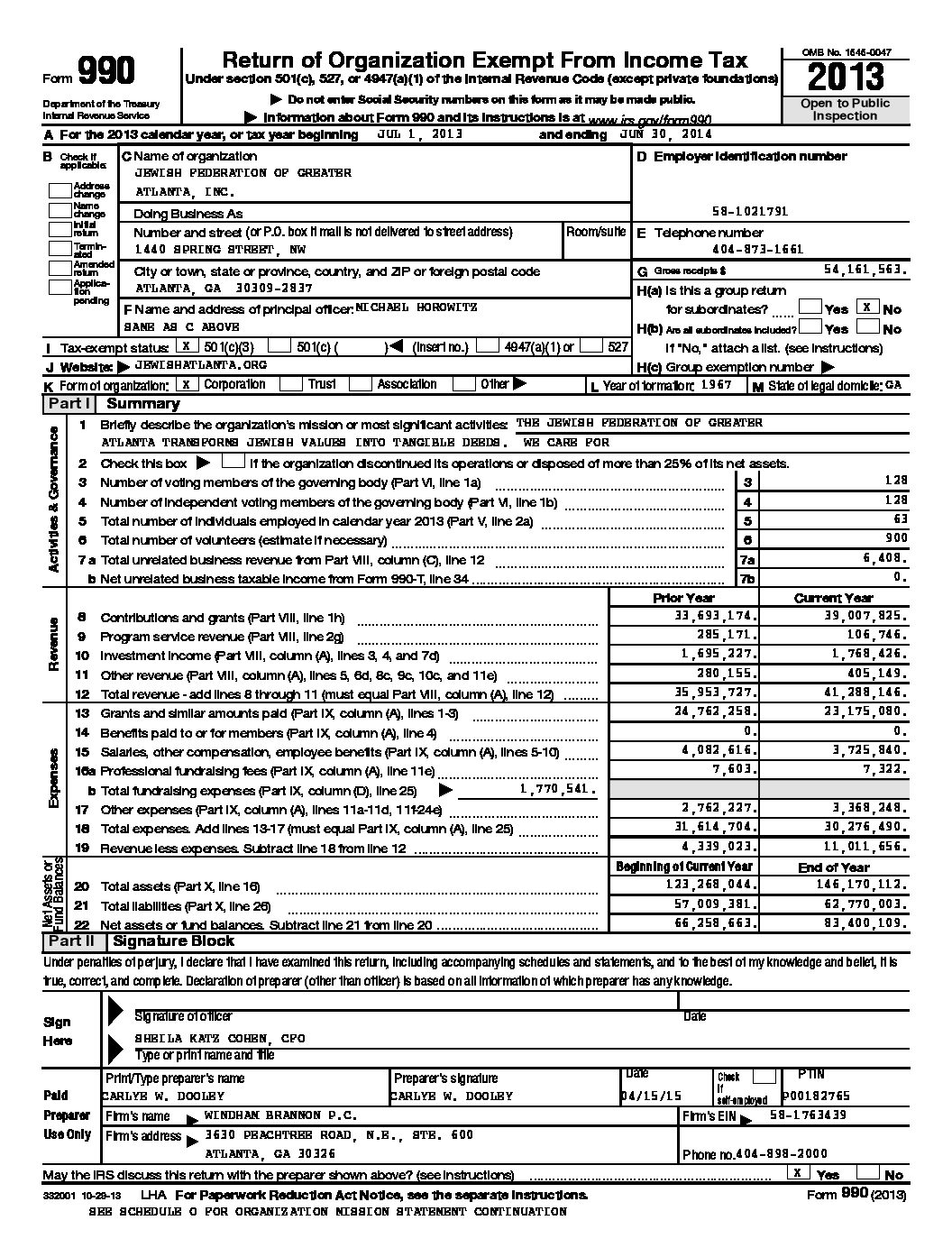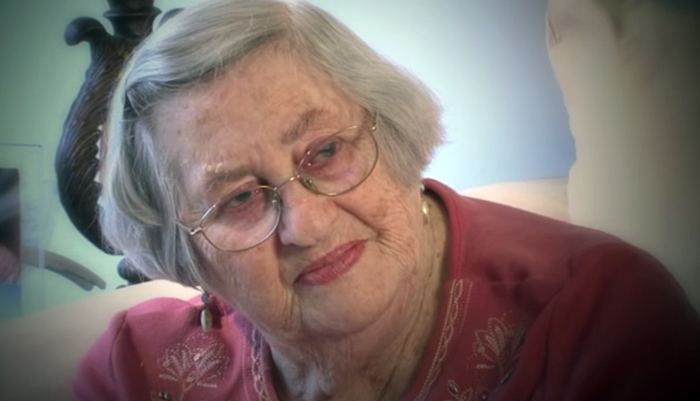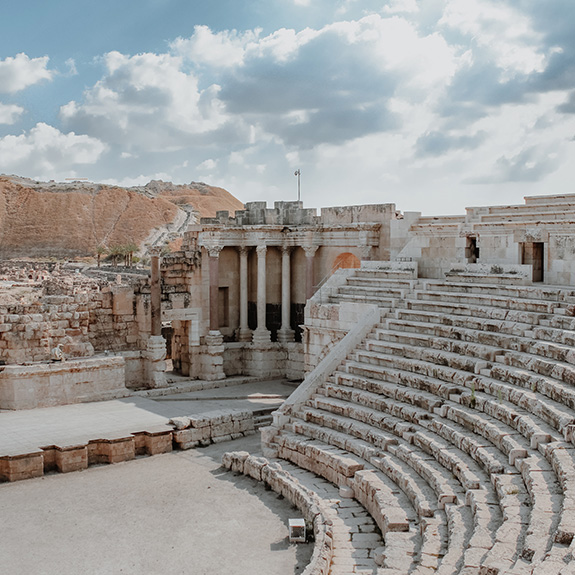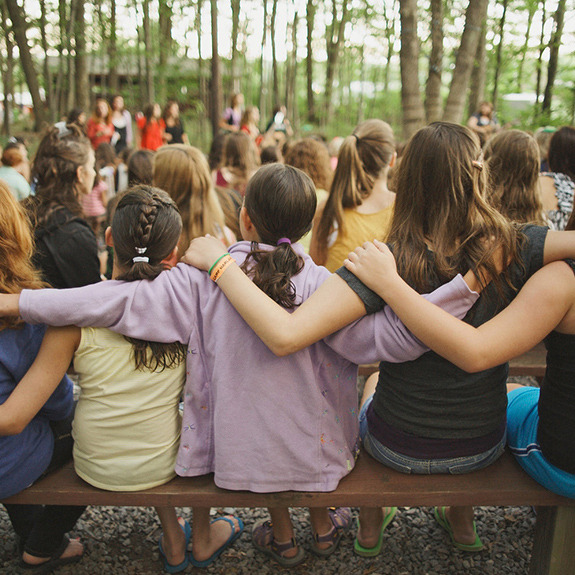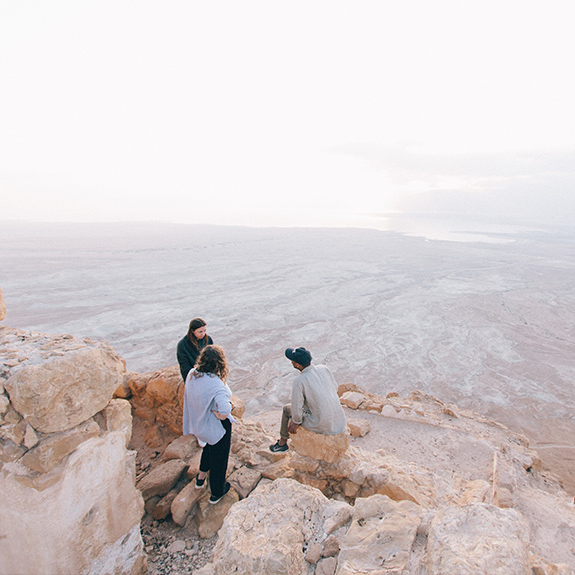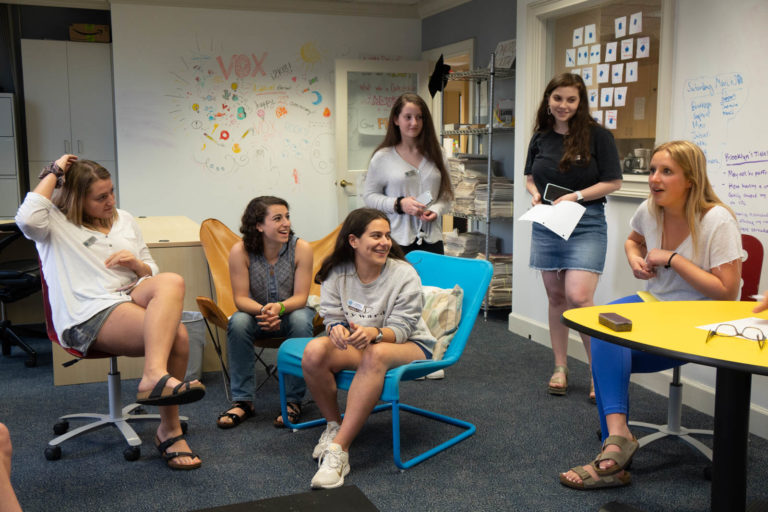
Jumpspark’s Strong Women Fellowship, an empowering educational cohort for Jewish teens in grades 9-12, has more than doubled in size and expanded programming to feature a leadership track, 9 neighborhood community groups, and more connection to Israel through a partnership with the Jewish Federation of Atlanta’s Shinshinim program. The 59 fellows participating in 2019-20 represent 18 high schools and 17 synagogues from the Atlanta metro.
The Strong Women Fellowship, launched in fall 2018 with an initial cohort of 28 teens, provides unparalleled access to strong women leaders, thinkers and voices shaping their world. Each month fellows meet guest speakers, build relationships in neighborhood community groups, and grapple with the issues facing young women. The program is funded by the Jewish Federation of Greater Atlanta, Jewish Women’s Fund of Atlanta, and the Jim Joseph Foundation.
After her experience in the fellowship last year, Tamar Guggenheim said, “I grew as a woman and became a stronger and prouder Jewish woman, too. Women across the globe have been using their voices to advocate for what they believe in, and through this fellowship, I too, have been given tools to do the same in my Jewish community and hopefully across the world.”
Monthly guests include local female Jewish professionals and leaders, as well as national leaders and influencers, that speak on relevant topics such as women in politics, diet culture, mental health, representation of Jewish women of color, and more. Guests this year include Lindy Miller (business woman and former GA Public Service Commission candidate), Whitney Fisch, MSW (Jewhungry blogger and teen advocate), Dr. Tarece Johnson (author, activist, and multicultural expert), and more. For the full itinerary, visit jumpsparkatl.org/strong-women-fellowship.
With the help of Rachel Alterman Wallack of VOX ATL, Atlanta’s home for uncensored teen publishing and self-expression, JumpSpark has developed a robust Peer Leader program offering returning fellows leadership roles, tailored training and group facilitation resources, event planning experience, and resume-building skills and opportunities.
The 2019-20 Peer Leaders include:
- Mya Artzi
- Téa Barton
- Emma Cohen
- Lauren Cohn
- Rachel Cohn
- Sydney Fox
- Maya Laufer
- Stella Mackler
- Macy Mannheimer
- Emma Nowitz
- Moira Poh
- Lilah Presser
- Lulu Rosenberg
- Zoe Rosenberg
- Lexi Silberman
- Lili Stadler
- Abigail Ventimiglia
- Rene Walter
The 2019-20 Strong Women fellows are (*denotes returning participant):
- Lila Arnold, Lakeside HS c/o 2022
- Mya Artzi*, North Springs Charter HS c/o 2020
- Aura Avrunin, Capstone Academy c/o 2022
- Téa Barton*, Riverwood Int’l School c/o 2021
- Hailey Bayer, Dunwoody HS c/o 2022
- Eva Beresin, Riverwood Int’l School c/o 2023
- Mollie Binderman, North Springs HS c/o 2023
- Rachel Binderman, The Weber School c/o 2022
- Emma Cohen*, Woodward Academy c/o 2022
- Morgan Cohen, Riverwood Int’l School c/o 2021
- Lauren Cohn*, Riverwood Int’l School c/o 2021
- Rachel Cohn*, Riverwood Int’l School c/o 2021
- Gabby Cope, Lakeside HS c/o 2023
- Sarah Dowling, The Lovett School c/o 2022
- Sydney Fox, Riverwood Int’l School c/o 2020
- Alexa Freedman, The Galloway School c/o 2022
- Ruby Frohman, Dunwoody HS c/o 2023
- Marissa Goodman*, Pace Academy c/o 2022
- Tamar Guggenheim*, Riverwood Int’l School c/o 2022
- Julia Harris, Dunwoody HS c/o 2023
- Amelia Heller, The Weber School c/o 2023
- Emma Hurwitz, Johns Creek HS c/o 2023
- Katie Hurwitz*, Johns Creek HS c/o 2021
- Kayla Jacobs, Pope HS c/o 2021
- Sara Jacobs, Johns Creek HS c/o 2023
- Rebecca Kann*, Pace Academy c/o 2022
- Phoebe Kaplan, Riverwood Int’l School c/o 2023
- Sophie Kieffer, The Galloway School c/o 2020
- Nicole Khalifa, Atlanta Shinshinim
- Maya Laufer*, Dunwoody HS c/o 2022
- Annie Levy, The Galloway School c/o 2022
- Stella Mackler*, Grady HS c/o 2022
- Macy Mannheimer*, Milton HS c/o 2021
- Kira Mermelstein, Atlanta Jewish Academy c/o 2021
- Emma Nowitz*, North Springs HS c/o 2022
- Moira Poh*, North Springs HS c/o 2022
- Lilah Presser*, The Weber School c/o 2021
- Ariel Raggs*, Chamblee Charter HS c/o 2021
- Miriam Raggs, The Weber School c/o 2023
- Lulu Rosenberg*, North Springs HS c/o 2022
- Skylar Rosenberg, Lakeside HS c/o 2023
- Zoe Rosenberg*, North Springs HS c/o 2020
- Jenna Sailor, Dunwoody HS c/o 2023
- Peyton Schwartz, Pope HS c/o 2023
- Blair Seigle, Dunwoody HS c/o 2023
- Lily Shulimson, North Oconee HS c/o 2023
- Zoe Siegel*, Riverwood Int’l School c/o 2022
- Lexi Silberman*, Dunwoody HS c/o 2020
- Hannah Sokolik, Dunwoody HS c/o 2021
- Lili Stadler*, The Weber School c/o 2021
- Lily Stoumen*, Riverwood Int’l School c/o 2021
- Abigail Ventimiglia*, N. Gwinnett HS c/o 2020
- Rene Walter*, Dunwoody HS c/o 2021
- Yael Weber, Atlanta Shinshinim
- Rachel Winner, North Springs HS c/o 2023
- Anna Wynne*, Pope HS c/o 2020
- Noa Young, North Springs HS c/o 2023
- Audrey Zeff, Grady HS c/o 2023
- Alex Zelcer, Woodward Academy c/o 2021
JumpSpark, Atlanta’s hub for Jewish teen innovation and engagement, connects and invests in the community to create more meaningful and defining moments for Jewish teens in Atlanta. Serving teens, their parents, and educators that work with teens, JumpSpark offers empowering teen programs, Navigating Parenthood workshops, professional development, and grants. JumpSpark is supported as an innovation initiative of the Jewish Federation of Greater Atlanta, by the Jim Joseph Foundation, and by generous donors in the community.
